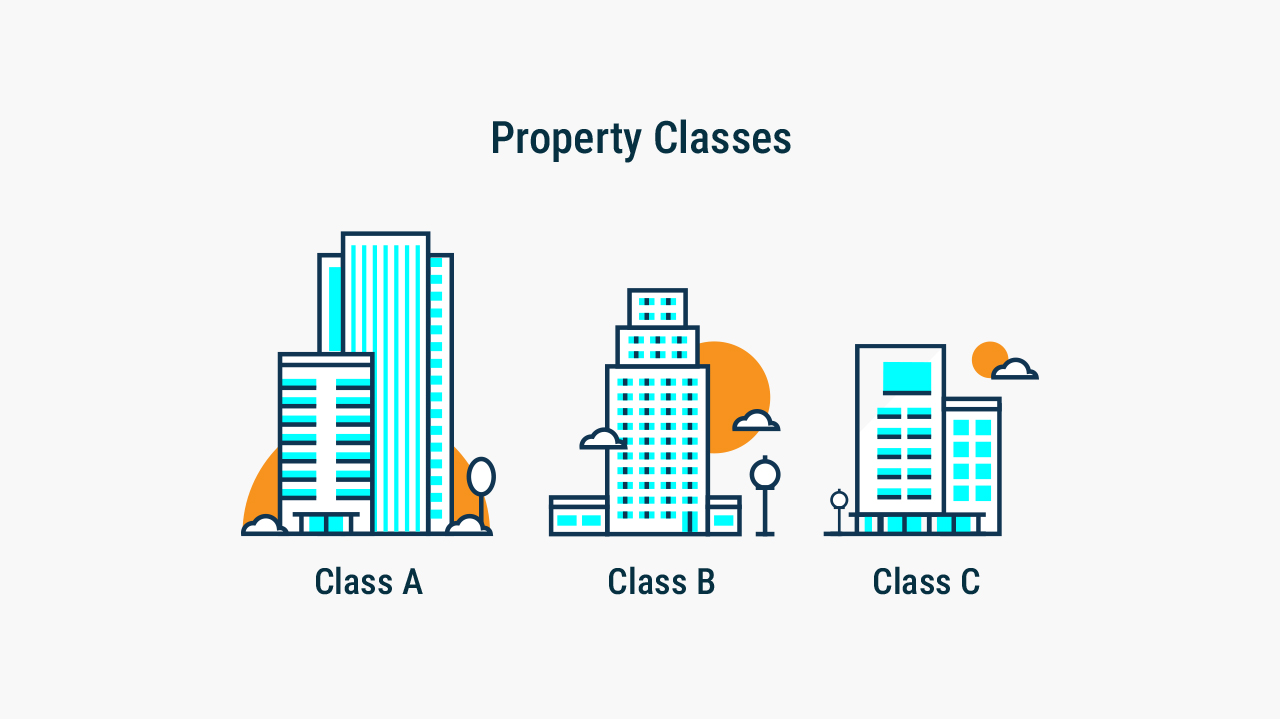Introduction
Inflation and interest rates can both have a significant impact on commercial real estate. Inflation is the general increase in prices for goods and services over time. When the cost of goods and services increases, the value of money decreases, which can lead to higher real estate prices. As the cost of building and maintaining properties increases due to inflation, the prices of those properties go up.
Interest rates refer to the cost of borrowing money. When interest rates are high, it can be more expensive for buyers to finance the purchase of a property, which may lead to lower demand and prices. According to Deloitte, in the early phases of the pandemic, commercial real estate business in the US alone dropped by 27%. While all economic sectors were recuperating from the effects of the worldwide pandemic, inflation and rising interest rates have emerged as the new hot topics for the industry.
After the pandemic, the US experienced its highest level of inflation in more than 40 years. The Federal Reserve is prompted to take decisive and effective actions to defuse this crisis. The central bank raised rates by 75 basis points several times, setting the target range at 5.25% to 5.50% to calm the economy. Federal Reserve Chairman Jerome Powell said more interest rate rises would be needed to cool inflation to the Fed’s 2% target.
Inflation, Interest & Commercial Real Estate: How they are related
How the sector might respond to inflation and increasing interest rates is complicated. When interest rates are low, it can be more affordable for buyers to finance a purchase, which may lead to higher demand and prices. Usually, as inflation rises, the value of the property also rises. It is important to remember that many other factors can affect prices, and the impact of inflation and interest rates can vary depending on the specific market conditions.
In general, rising inflation and rising interest rates may lead to lower demand for real estate and, as a result, lower prices. Conversely, falling inflation and falling interest rates may lead to higher demand and higher prices. In simpler words, if inflation occurs, you won’t be able to buy the same goods you do now with the same amount of money in the future. The Consumer Price Index (CPI) is used to calculate inflation every month.
Understanding how the commercial real estate industry might react to inflation requires considering several factors, including property type, inflation type, consumer confidence, and lease factors (short-term or long-term).
Property Type
Properties of different types react to inflation in various ways. For instance, properties that took advantage of historically low borrowing rates will benefit since their value will rise while their cost stays unchanged. Since the Fed has already warned that higher interest rates are on the way to combat inflation, these properties’ owners will likely continue to cling to their developed properties to benefit from the increased property value and low availability. Additionally, inflation drives up the cost of construction supplies and labor. Because of this, there would be less rivalry in the market, which would be advantageous for already-built properties. However, inflation might not be as pleasant for new properties that have yet to be developed.
Inflation Type
Depending on the inflation, the commercial real estate industry may respond to it differently. Inflation may happen for a variety of causes. Rising wages, devaluation, cost-push inflation (driven by factors that affect the cost of production), demand-pull inflation (an increase in overall demand for goods and services), and increased money supply are a few of the causes. Strong economic growth and rising inflation are positive indicators for the real estate market while increasing unemployment and sluggish demand are negative.
Consumer confidence
Consumer confidence in the market refers to the level of trust and belief that consumers have in the stability and growth of the real estate market. Various factors influence this confidence, including economic conditions, interest rates, employment, and consumer spending patterns. High consumer confidence in the commercial real estate market can indicate that people are optimistic about the market’s future and are more likely to invest in real estate by buying or renting. This can increase property demand, driving prices and creating a more favorable environment for real estate investment. On the other hand, low consumer confidence in the commercial real estate market can indicate that people are concerned about the market’s future and may be less likely to invest in real estate. This can decrease property demand, lowering prices and a less favorable commercial real estate investment environment.
Lease Factors
In an environment of rising prices, tenants who could secure long-term leases with reasonable rent will benefit particularly. For owners, long-term leases can reduce the turnover of tenants, which can help reduce the costs associated with finding new tenants and maintaining vacant properties. In the wake of inflation, Long-term leases can provide tenants with predictable costs, which can help with budgeting and financial planning. A long-term lease can reduce the costs associated with moving, such as finding a new location, renovating, and re-establishing the business. For owners, long-term leases can increase bargaining power, as tenants are more likely to agree to favorable lease terms in exchange for the security of a long-term lease.
Historical Relation of Commercial Real Estate & Inflation
Looking at the past, we can study how inflation affected the economy during the 1940s and 1980s. Both times, prices went up quickly but then went down again. Back in the 1980s, the industry was doing well because of inflation. Companies invested in real estate with loans with a fixed interest rate, but too many buildings were constructed, so there needed to be more space for rent. This caused lease rates to drop. Cushman & Wakefield found that if inflation keeps going up for a certain period without hurting the economy, the profits from real estate can increase by 1.1% for every 1% increase in inflation.
How Higher Borrowing Cost Affects the Industry
Inflation can make it more expensive to buy a property. If you have a fixed-rate mortgage loan, your interest and the prices of things you buy might increase. This could make it harder for you to buy things with the profits from the investment. But if you have a different type of loan called a variable-rate mortgage, your monthly payments might go up because the interest rate can change with the inflation rate. When interest rates go up, it can also cost more for property owners to make improvements or pay for other expenses because they may have to pay more in interest. This can be a problem for brokers because the demand for acquiring properties in a higher interest rate environment slows down. The returns on acquiring properties in higher interest rate environments are much smaller, making it harder for buyers to obtain loans, which causes the price of investment properties to decrease. Long-term, fixed-rate loans are less affected by rising interest rates than short-term, adjustable-rate commercial real estate loans. But, not all types of real estate are affected equally.
Office Real Estate
The demand for office tenant reps has increased after the pandemic. The leasing market in some areas has recovered significantly, and the need for office space is returning. However, investor demand for this asset class will likely slacken if demand does not increase further and inflation rises quickly for average long-term, full-service leases. Innovative approaches are being taken to offer adaptive reuses of office projects.
Self-Storage
People’s lifestyles have changed in response to the epidemic, and self-storage providers have seen record success during the past two years. Marcus & Millichap’s Self Storage National Report, generated in the third quarter of 2022, shows that, compared to the end of 2019, the average asking rent for a typical 10-foot by 10-foot unit increased by 15% in June. The vacancy rate also decreased 190 basis points to 6.6 percent.
Multifamily Real Estate
Multifamily investors in many cities still have the scope to raise rents to attain their investment objectives. The Multifamily market is tight in some cities like New York and DC. But supply growth remains well above 20,000 units annually in New York, preventing further contraction of overall availability. If interest rates or inflation climb too much, these cities’ multifamily investors might face impacts that may not be as advantageous.
Retail Sector
Retail properties are typically leased for shorter terms, usually between one to five years, which can protect against inflation. When inflation causes rents to increase, landlords typically negotiate new leases with their tenants. In the case of retail properties, the shorter lease terms mean that landlords can adjust their rents more frequently to reflect changes in the market, which can help protect against the adverse effects of inflation.
Apartment Buildings
In recent years, industrial real estate and apartment buildings have been the strongest-performing sectors in the market, delivering higher returns than other property types. This is due to a combination of factors such as increased demand for industrial space for e-commerce and warehousing and strong demand for rental housing due to population growth and shifting preferences toward rental living.
Private Commercial Real Estate
Inflation can positively impact private commercial real estate as it typically drives up rents, increasing property value. As a result, private commercial real estate investments may be more attractive to investors during periods of inflation, as they can benefit from higher rents and increased property values. On the other hand, Public REITs (these are investment trusts that are publicly traded companies; they own and manage real estate properties) tend to be more liquid and yield better returns when the market increases. Public REITs are considered more liquid than private commercial real estate investments, as they can be easily bought and sold on the stock market. Public REITs can yield better returns in a strong market as their stock price increases along with the overall market’s performance.
Conclusion
The relationship between interest rates and prices can be complex, and the direction and magnitude of the impact can vary depending on the specific market conditions. For example, rising interest rates may lower prices in a strong market with high property demand. In contrast, in a weaker market, rising interest rates may lead to a more significant price decline. It is essential for investors to stay informed about inflation and interest rates and to understand how these factors may impact the value of their investments. The commercial real estate market trend is now quite unstable due to inflation and increasing interest rates. Many significant variables need to be considered before investing since those variables will influence the performance of the investment. Investors have historically viewed real estate as a hedge against inflation when the tenants cover most or all the operating costs. However, if inflation calms down but interest rates keep increasing in the long term, property values may suffer since debt becomes more expensive. Commercial real estate brokerage firms like Allies Commercial Realty can help guide you through valuing commercial real estate, thus making informed decisions when buying and selling properties.
 Apr 1, 2024
Apr 1, 2024 177 Views
177 Views
 Mar 7, 2024
Mar 7, 2024 351 Views
351 Views Jan 2, 2024
Jan 2, 2024 291 Views
291 Views Dec 13, 2023
Dec 13, 2023 279 Views
279 Views




















